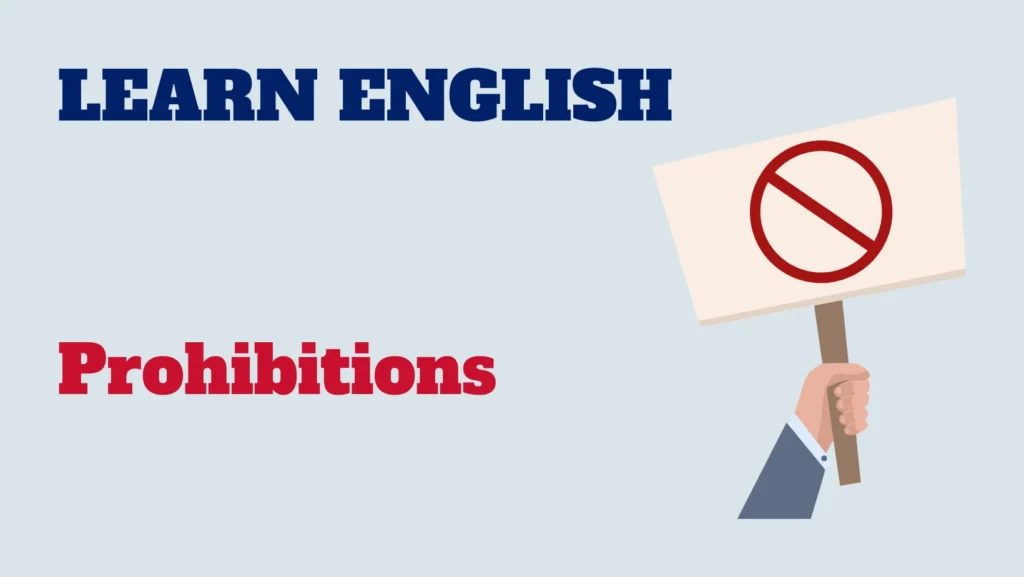Learning a new language involves not only acquiring a set of grammar rules and vocabulary but also understanding the cultural and social nuances that influence everyday communication. In this lesson, we will explore a crucial aspect of the English language: expressions for prohibiting.

Knowing how to prohibit something appropriately is essential for establishing harmonious relationships and avoiding misunderstandings. Let’s discover some common expressions for prohibiting in English.
“It’s prohibited”
One of the simplest and most direct ways to express prohibition in English is to use the expression “It’s prohibited.”
For example, if you want to indicate that smoking is not allowed in a specific area, you could say,
“Smoking is prohibited here.”
“It is forbidden to…”
Another formal way of expressing prohibition is by using the phrase “It is forbidden to…“.
For instance,
“It is forbidden to park in this area.”
“You are not allowed to…”
To specify actions that are not allowed, you can use the phrase “You are not allowed to…“.
For example,
“You are not allowed to take photos here.”
“It is strictly prohibited…”
When you want to emphasize a prohibition with seriousness, you can add the adverb “strictly“:
“It is strictly prohibited to enter this area.”
“Please do not…”
To give a polite connotation to a prohibition, you can add “Please“:
“Please do not touch the exhibit.”
“One must not…”
A more general expression for expressing prohibition is “One must not…“.
For example,
“One must not speak loudly in the library.”
“It goes against the rules”
If something is against established rules, you can simply say, “It goes against the rules” to indicate that it is prohibited.
For example,
“Using a mobile phone during the exam goes against the rules.”
“Formal prohibition of…”
For a touch of seriousness, you can use “Formal prohibition of…“.
For instance,
“Formal prohibition of entering without authorization.”
Knowing how to express prohibitions appropriately in English is essential for effective communication in various contexts. Whether you are traveling, studying, or working in an English-speaking environment, these expressions will be useful. Remember that the way you communicate a prohibition can vary based on the level of formality and context, so it’s always good to adapt your phrases accordingly.



